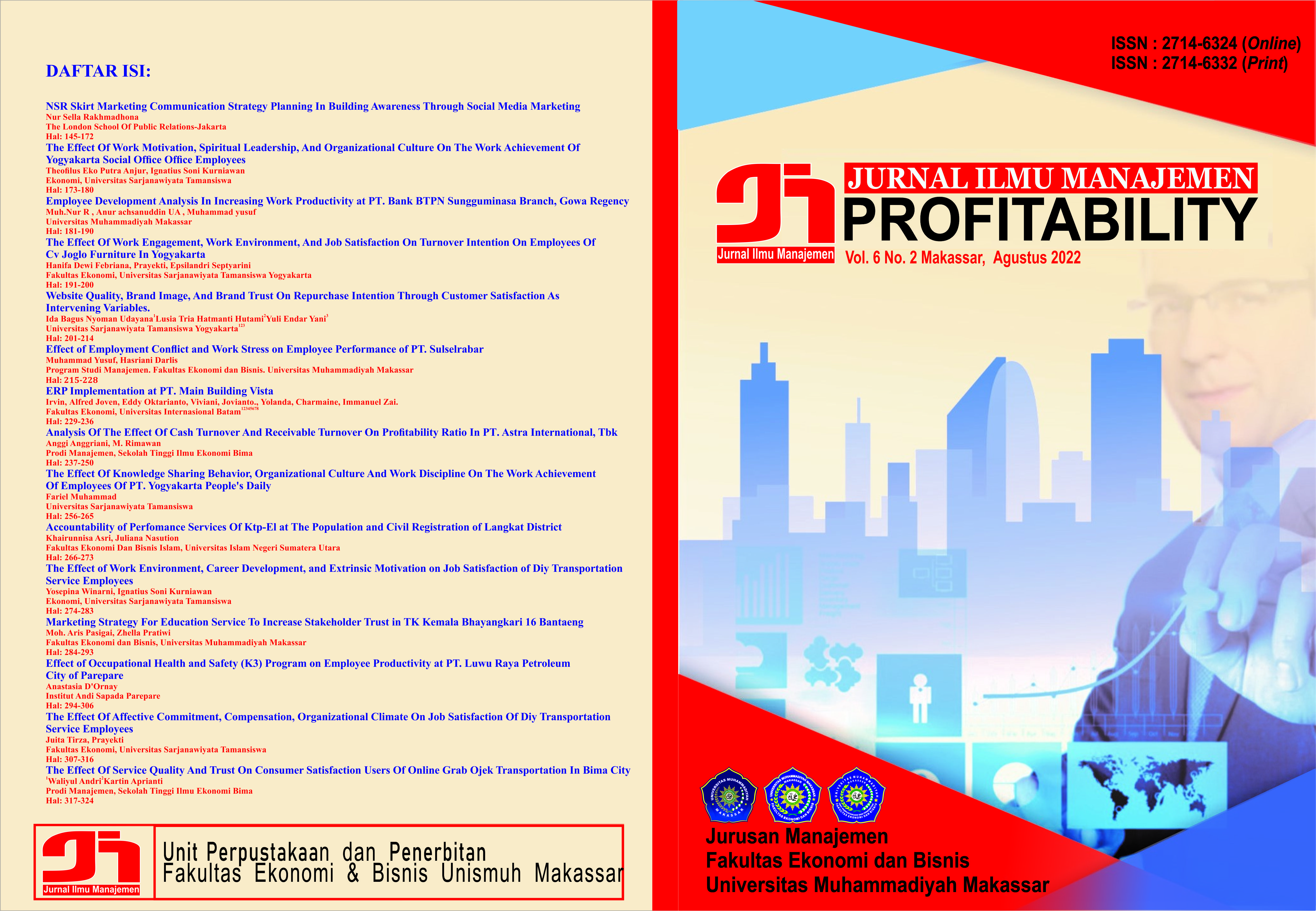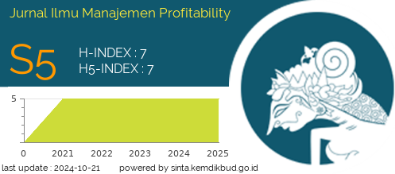The Impact of the Baznas Z-Auto Program on Improving the Community's Economy in Kab. Barru (Sharia Economic Analysis)
DOI: https://doi.org/10.26618/fnsg4027
Impact of BAZNAS Z-Auto Program, Improvement of Community Economy in Barru, (Sharia Economic Analysis)
Abstract
Zakat-based empowerment programs are an important instrument in supporting sustainable community development, yet studies assessing their effectiveness at the local level remain limited. In particular, empirical evidence on how zakat programs align with sharia economic principles while enhancing the welfare of beneficiaries is still underexplored. This study seeks to fill this gap by examining the impact of the BAZNAS Z-Auto Program on community economic empowerment in Barru Regency. The research employed a mixed-method case study approach that combined descriptive quantitative and qualitative analysis, allowing for an in-depth understanding of both program outcomes and implementation mechanisms. Data were collected from mustahik beneficiaries, program documentation, and institutional reports to capture the program’s effectiveness and challenges. The findings indicate that the Z-Auto Program has positively contributed to improving the economic welfare of mustahik through the provision of productive facilities and targeted assistance. Moreover, the integration of sharia principles is evident: siddiq (truthfulness) through transparent beneficiary selection and reporting, amanah (trustworthiness) in fund management, fathonah (professionalism) in planning and mentoring, and tabligh (transparency) in communication. While some challenges remain in disseminating information broadly, the overall synergy of these principles enhances program sustainability. These results enrich the literature on zakat-based empowerment and provide practical insights for policymakers and zakat institutions in designing more effective and sharia-compliant community development strategies.
References
1. Libraries in the form of textbooks:
Al-Qardhawi, Y. (1993). The Law of Zakat. Muassasah al-Risalah.
Andri, S. (2009). Banks & Sharia Institutions. PT. Kharisma Putra Utama.
Basrowi, & Surwardi. (2008). Understanding Qualitative Research. Rineka Indah.
Dakhoir, A. (2015). The Law of Zakat. Lentera Hati.
Ghazali, L. U. K. and A. M. (2015). Ahkan Exegesis. UIN Press.
Hafidhuddin, D. (2008). Zakat in the Modern Economy. Gani Insani.
Katsīr, I. bin. (n.d.). Lubāb al-Tafsīr Min Ibni Katsīr.
Ministry of Religion of the Republic of Indonesia, Al-Qur’an and Translation. (2019). The Process of Al-Qur’an Translation.
Mannan, M. A. (2014). Islamic Economic Law. Kencana.
Mawardi. (2007). Islamic Economics. Alaf Riau.
Muin, R. (2020). Zakat Management. Pusaka Almaida Publisher.
Mursyidi. (2003). Contemporary Zakat Accounting (P. Rosdakarya (Ed.)).
Mursyidi. (2015). Government Accounting in Indonesia. Refika Aditama.
Mustafa, A. (1993). Al-Maraghi's Interpretation (C. T. Putra (Ed.); II).
NdrahaTaliziduhu. (2011). Dimensions of Village Governance. Bumi Aksara.
Prasetyo, H. (2020). Village Financial System: Technology for Transparency. Alfabeta.
Qardawi, Y. (2007). The Law of Zakat, Translation. Pustaka Literasi antara Nusa.
Qardhawi, Y. (2010). Islamic Tips for Eradicating Poverty. Gema Insani Press.
RI, Ministry of Religion. (2019). The Quran and its Translation. Latnah Pentansihah Mushaf Al-Quran.
RI, K. A. (2019). The Quran and its Translation. Lainah Pentashihan Mushat Al-Quran.
Rozalinda. (2015). Islamic Economics: Theory and Application. PT. Grafindo Persada.
Shihab, M. Q. (2015). Al Misbah Commentary Volume 11. Letera Hati.
Shihab, M. Q. (2018). Al-Mishbah Commentary Under Scrutiny: A Critique of Prof. M. Quraish Shihab's Commentary Work. Pustaka Al-Kautsar.
Yunus, M. (1990). Arabic-Indonesian Dictionary. Hidakarya Agung.
Zulkarnain. (2003). Building the People's Economy: Perceptions of Economic Empowerment of the People. Adicita Karya Nusa Translated with DeepL.com (free version).
2. Libraries in the form of scientific journals:
Suardi, & Y. (2022). Mechanisms for the Collection and Distribution of Zakat Fitrah at the Al-Ikhlas Pawosoi Mosque, Wotu District, East Luwu Regency. Journal of Islamic Economics and Business, 4(1).
Subadi, M. and. (2015). Implementation of Islamic Principles in Economic Activities. Research Journal, 2.
Santi Ariyani, A. Y. (2022). Analysis of the Impact of Productivity on the Welfare of Beneficiaries Using the Center of Islamic Business and Economic Studies (CIBEST) Approach. Journal of Islamic Economics and Business, Vol. 5,
Nugraha, A. (2019). Community Development Through Social Assistance in the Concept of Empowerment in the Economic Sector. Journal of Modernization Economics, Vol. 9(2).
Firdaus, Taman, R., & Mukrabin. (2021). The Impact of Direct Cash Assistance (BLT) from Village Funds on Welfare. Journal of Sharia Economics, 4(2).
Downloads
Published
Issue
Section
License
Authors who publish with Jurnal Ilmu Manajemen Profitability agree to the following terms:
Copyright of the articles remains with the authors.
Authors grant the journal the right of first publication with the work simultaneously licensed under a Creative Commons Attribution-NonCommercial 4.0 International License (CC BY-NC 4.0). This license allows others to:
Share (copy and redistribute the material in any medium or format)
Adapt (remix, transform, and build upon the material)
as long as they give appropriate credit to the original author(s) and source, provide a link to the license, and indicate if changes were made. Non-commercial use only.
Authors are permitted to:
Distribute their published work (e.g., post it to an institutional repository or publish it in a book), with an acknowledgment of its initial publication in this journal.
Enter into separate, additional contractual arrangements for the non-exclusive distribution of the journal’s published version of the work (e.g., post it to a class website or institutional archive).
For permissions to use the content published in this journal beyond the scope of the license (e.g., commercial purposes), please contact the editorial office via the journal email.
License Details:
This journal is licensed under a Creative Commons Attribution-NonCommercial 4.0 International License (CC BY-NC 4.0).












